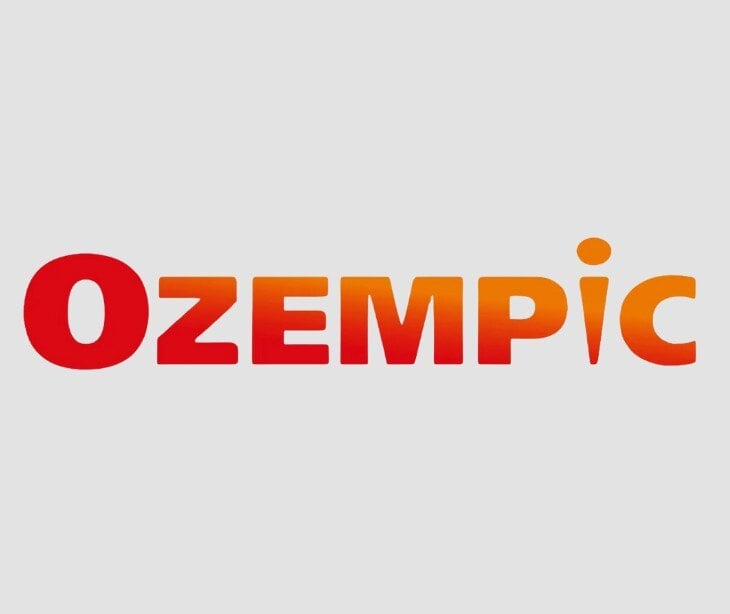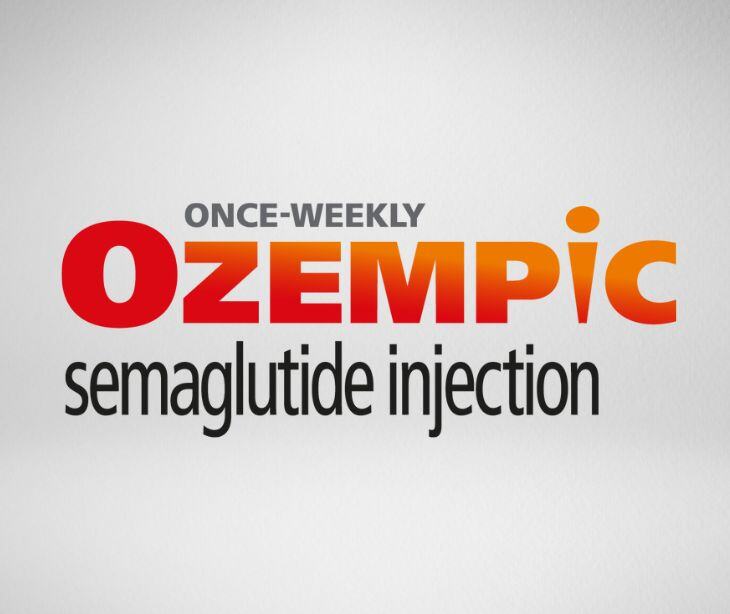
In recent years, the rise in the off-label use of Ozempic for weight loss has sparked a new wave of interest among many patients. As more patients ask for Ozempic, providers can use HIPAA compliant emails and text messages to address misconceptions and educate patients, promoting health outcomes.
What is Ozempic?
Ozempic, also known by its generic name semaglutide, is a prescription medication used to improve blood sugar control in adults with type 2 diabetes. It belongs to a class of drugs called glucagon-like peptide-1 (GLP-1) receptor agonists, which stimulate insulin release and reduce glucose production.
Ozempic offers several benefits, including “[reducing] the risk of major cardiovascular events such as heart attack, stroke, or death in adults with type 2 diabetes with known heart disease.”
The growing Ozempic popularity
While Ozempic was initially developed and approved as a treatment for diabetes, it recently gained popularity as an off-label weight-loss aid.
A Google Trends analysis on public interest in using Ozempic for cosmetic weight loss explains, “The off-label use of Ozempic… for cosmetic weight loss has been popularized by social media and celebrity influence [with] a significant and growing public interest in Ozempic and related GLP-1 receptor agonists.”
As obesity remains a public health concern globally, using Ozempic can lead to weight loss in addition to improving blood sugar control, making it an attractive option for individuals looking to manage their weight.
However, the previous study warns that as Ozempic for weight loss becomes more prevalent, providers “must be prepared for the downstream implications.” For example, “the recent GLP-1 agonist drug shortage and a range of improper self-administration reports in non-clinically obese, non-diabetic, non-prescribed subjects,” described in a study on social media platforms and GLP-1 receptor agonists.
Furthermore, improper Ozempic use can lead to adverse effects like gastrointestinal disturbances, hypoglycemia, or pancreatitis. According to Lawsuit Legal News, “More than 10,000 complaints from Ozempic users have revealed these severe side effects. Most of the initial cases involved gallbladder issues, but lately many users, including celebrities taking this drug for weight loss purposes, have raised awareness about a potential link between Ozempic and stomach paralysis.”
How providers can help
Providers must assess patients’ medical history and needs before prescribing Ozempic for weight loss, ensuring that its use is appropriate and safe within the context of their overall health management plan.
Moreover, providers can help educate patients on proper Ozempic use by debunking myths and clarifying misconceptions. Providers can also steer patients towards reliable sources of information, like reputable medical websites and peer-reviewed literature, to ensure patients have accurate and evidence-based knowledge of Ozempic.
However, HIPAA regulations mandate that providers safeguard patients' protected health information (PHI) when discussing their medical treatment, including Ozempic therapy.
Go deeper: What is protected health information (PHI)?
How to ensure HIPAA compliance
Use a HIPAA compliant platform: Providers must use a HIPAA compliant platform, like Paubox, for all electronic communications. These platforms use advanced security measures, like encryption and access controls, securing patient information during transmission and at rest.
Obtain patient authorization: Providers must obtain explicit patient authorization before disclosing any PHI, including details about their Ozempic prescription or treatment plan, and clearly explain the purpose of the communication.
Minimum necessary standard: Providers should only disclose the minimum amount of PHI necessary when discussing Ozempic with patients.
Training and education: Ensure staff members receive comprehensive training on HIPAA regulations and guidelines for safeguarding patient information. Regularly update training materials to reflect any changes or updates to HIPAA requirements.
Regular auditing: Providers must keep detailed records of all communications related to Ozempic prescriptions and treatment plans, including patient consent forms. Regularly auditing these documents can help providers promptly identify and address potential breaches, mitigating risks to patient data and ensuring HIPAA compliance.
Using HIPAA compliant emails and texts
Patient education
Providers must use HIPAA compliant emails and text messages when sending information about Ozempic, like its mechanism of action, dosing instructions, potential side effects, and benefits. Additionally, providers can use visuals to help patients understand these concepts.
For example, if a patient asks how Ozempic works, their provider can send HIPAA compliant email with an infographic to help explain its mechanism of action.
Read also: Personalized patient education, HIPAA, and AI
Addressing misconceptions
Providers can use HIPAA compliant emails or texts to address patient misconceptions surrounding Ozempic, ensuring patients have accurate information about their treatment.
For example, if a patient is concerned about Ozempic causing severe side effects, like pancreatitis, their provider can respond with evidence-based information, explaining that while pancreatitis is a potential side effect, it is rare and usually resolves with discontinuation of the medication.
Providing resources
HIPAA compliant emails and texts can include secure links to reputable medical websites and peer-reviewed literature. If a patient wants to learn more about the potential benefits of Ozempic for weight loss, their provider can send a HIPAA compliant message containing links to scientific studies that discuss how Ozempic can promote weight loss.
Empowering patients
HIPAA compliance empowers patients by ensuring the confidentiality and security of their sensitive health information in all forms of communication.
Providers can use HIPAA compliant emails or texts to discuss the benefits and risks of patients using Ozempic for their weight-loss goals, empowering patients to take a more active role in health. If a patient has concerns about starting Ozempic, their provider can respond with a HIPAA compliant email, explaining how the medication fits into their overall treatment plan.
Also, if a patient is considering Ozempic but has mobility issues that make in-person consultations challenging, their provider can offer the option to communicate via HIPAA compliant emails or texts. Patients can discuss their treatment options remotely, empowering them to actively participate in decision-making while respecting their privacy.
Read also: Offering remote healthcare using HIPAA compliant text messages
Collaborative decision-making
HIPAA compliant emails and texts can facilitate collaborative decision-making between healthcare providers and patients regarding Ozempic treatment. Providers can initiate this dialogue and patients can voice their preferences, allowing providers to tailor the treatment plan as needed.
Additionally, HIPAA compliant emails and texts can streamline communication between healthcare professionals, improving collaboration and information sharing.
For example, if a primary care physician prescribes Ozempic for a patient with type 2 diabetes, they can securely communicate with an endocrinologist to discuss the treatment plan, monitor progress, and address any concerns.
Practical tips for adherence
HIPAA compliant emails and texts can offer practical tips to support patients in adhering to their Ozempic treatment plan, like establishing a routine for medication administration, managing side effects, and incorporating healthy lifestyle habits like diet and exercise.
Providers can also send patients automated reminders to take Ozempic at the same time each day, improving medication adherence. These reminders can be tailored based on whether patients prefer emails or texts and can include helpful tips on incorporating Ozempic into their daily routine.
Additionally, these reminders can help prevent missed doses and maintain the effectiveness of Ozempic therapy.
Go deeper: Improving medication adherence with HIPAA compliant texts
FAQs
Who does HIPAA apply to?
HIPAA applies to healthcare providers, health plans, and healthcare clearinghouses, as well as their business associates who handle protected health information (PHI).
Should Ozempic communication be HIPAA compliant?
Yes, HIPAA requires all communication on medical treatment to be secure.
So, providers must use a HIPAA compliant platform, like Paubox, when discussing Ozempic treatment, safeguarding patients' protected health information (PHI) and maintaining patient privacy.
What is a HIPAA authorization?
A HIPAA authorization is a form that allows patients to authorize the release of their PHI for purposes other than treatment, payment, or healthcare operations.
Read also: A HIPAA consent form template that's easy to share
Subscribe to Paubox Weekly
Every Friday we'll bring you the most important news from Paubox. Our aim is to make you smarter, faster.



